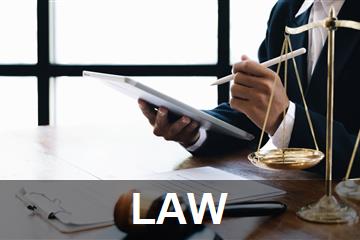
07 dic 2024
This critical commentary examines a judicial decision allowing employees to use secretly recorded conversations in court to defend their rights.
The ruling by the Court of Cassation prioritizes defense rights over third-party privacy concerns, aligning with prevailing jurisprudence.
The case involved employees submitting an audio recording of a meeting with company representatives as evidence in a labor dispute.
Despite initial opposition from the data protection authority and a lower court ruling, the Court of Cassation upheld the employees' actions as lawful, emphasizing the necessity of balancing privacy with the right to a fair trial.

In a significant ruling, the Court of Cassation has affirmed that employees may use secretly recorded conversations in legal proceedings if it serves to protect their rights. This decision underscores the precedence of defense mechanisms over third-party privacy concerns, aligning with the majority view in jurisprudence. The case originated when employees involved in labor disputes submitted an audio file as evidence. This file contained a recording of a conversation between a fellow employee and company representatives during a meeting held years prior. The company officials, unaware of the recording, filed a complaint with the Data Protection Authority under Article 77 of the EU Regulation 2016/679 (GDPR), seeking the deletion or destruction of the files. The Authority rejected their request, noting that the data processing was solely for contesting charges within the employment relationship. Subsequently, the officials took the matter to the ordinary court, which sided with them, declaring the Authority's decision invalid and the data processing by the employees unlawful. However, the Court of Cassation disagreed with this interpretation, supporting the initial stance of the Data Protection Authority. The Court deemed the employees' actions lawful and free from criticism, reiterating that using data without consent is permissible when defending a fundamental right. The Court emphasized that when data is used in legal proceedings, it is the responsibility of the presiding judge to balance the interests involved and decide on the admissibility of evidence involving third-party data. This is because the authority over data processing in such cases lies with the judiciary, which must reconcile the need for privacy protection with the proper conduct of the trial. The Court further stated that denying the right to defend oneself in court is unacceptable, especially in disputes concerning personal rights closely linked to human dignity, such as labor rights, as outlined in Article 36 of the Constitution. When fundamental rights are at stake, the Court concluded, based on Articles 17 and 21 of the GDPR, that the right to a fair trial may outweigh the data subject's rights.
issues
- The potential conflict between privacy rights and the right to a fair trial.
- The implications of using secretly recorded conversations as evidence.
- The role of the judiciary in balancing competing interests in legal proceedings.
reflection questions
- How should courts balance privacy rights with the need for a fair trial?
- What are the ethical considerations of using secretly recorded conversations in court?
- How does this ruling impact the relationship between employees and employers?
useful tips
- Understand the legal framework surrounding privacy and defense rights.
- Consider the potential consequences of using recorded conversations as evidence.
- Stay informed about changes in jurisprudence regarding privacy and legal defense.

